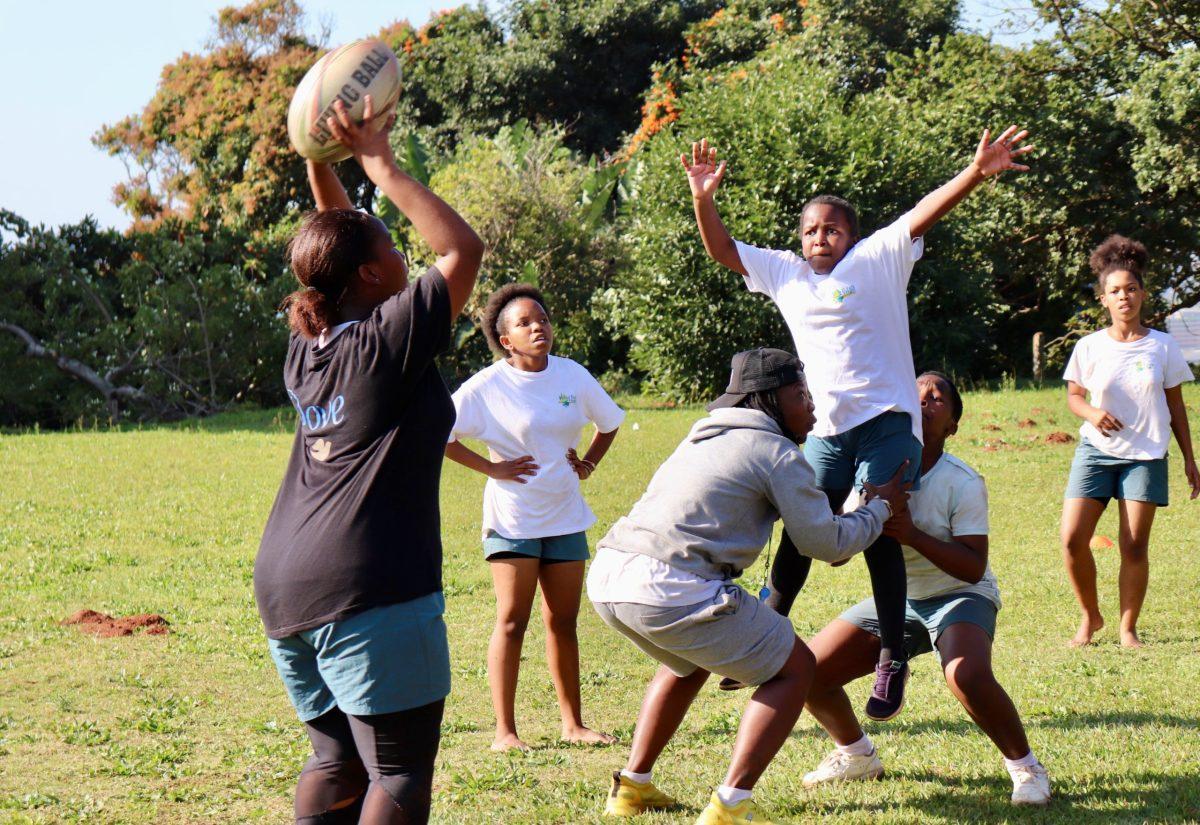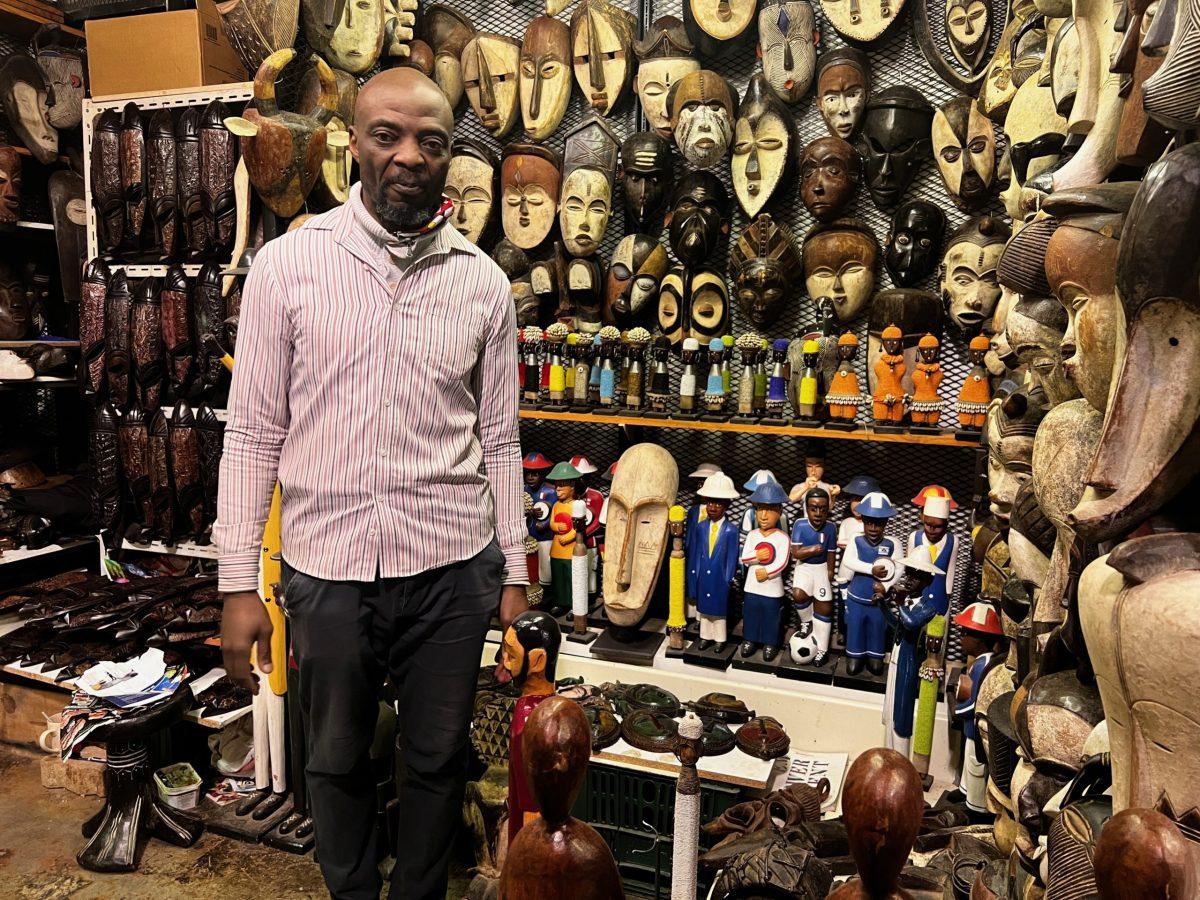Durban, South Africa — Nestled in the Windermere neighborhood of Durban, Kerr House is a home for women and their children who need support following gender-based violence, abandonment, homelessness or loss. The home sits tucked away among thick foliage, offering privacy to those who live there.
During the coronavirus outbreak, South Africa saw a significant increase in gender-based violence, as reported by the United Nations. In response to heightened need for support to victims of abuse, Kerr House and the other nine women’s centers in the greater Durban area established a network for communication so that they could support each other in the event that one exceeded facility capacity.
Experts have called the increase in violence against women that took place as a result of covid lockdowns the “shadow pandemic.” Kerr House was at full capacity during the height of the pandemic.
“Covid had a massive impact on gender-based violence,” said Gail Schreiner, head social worker at Kerr House. “Imagine being locked up with the abuser in your own home, which was the case. People couldn’t move out of their own homes.”
On March 27, 2020, the South African government enacted a prohibition of alcohol sales. This was the first of four consecutive bans, the last of which was lifted on July 25, 2021. These bans led to a decrease in intakes at hospital trauma centers across the country, Schreiner said.
“Until the alcohol ban, abuse was definitely on the increase, but the moment alcohol sales were banned, we saw a decrease in client intake,” Schreiner said.
Kerr House was founded in 1951 by a nurse named Elizabeth Cook. When she died, Cook left the facility to the responsibility of St. Paul’s Church and St. Cyprian’s Church, of the Anglican Church of Southern Africa. Rev. Dane Elsworth, rector at St. Cyprian’s, oversees Kerr House from a managerial support standpoint.
“Kerr House does an excellent job of providing support and rehabilitation to women in crisis who’ve been through a very negative experience in their life,” Elsworth said. “The fact that it has been going for 71 years says quite a lot about the service it offers.”
Clients come to Kerr House via referrals from other organizations in the social work sector, such as the South African Department of Social Development as well as the South African justice system. Other times, families are referred through the school system.
“We have a good relationship with the other shelters,” Schreiner said. “If we are full, for instance, and somebody needs accommodation, or a place of safety, we have a network that we’ve established so we can immediately find out if there is a vacancy at another shelter.”
Kerr House can house up to 15 people at any time. This includes women, mostly between the ages of 30 and 45, their children, and sometimes newborn babies.
“Domestic violence can affect anyone, [so] Kerr House is for anyone,” Schreiner added.
When clients arrive, they are given a care pack with self-soothing resources such as coloring and reflection tools. Upon intake, the clients work with the counseling team to set goals for their recovery through a care plan.
“Apart from providing a place of safety, we are also looking at the person holistically,” Schreiner said. “Upon intake, we normally do a care plan, an agreement between us and the client. It is in terms of cooperation, in terms of needs [and] in terms of development.”
A major facet of the work that Kerr House does is equip the women who walk through the doors with skills to help them succeed when they leave, Schreiner said. Each week, the women have responsibilities in the home. This helps facilitate the learning of domestic skills so that they can take care of themselves when they live on their own.
“Sometimes women come into our shelters, and they have no skill sets whatsoever,” Schreiner said. “They might not even know how to cook a meal.”
In addition to weekly chores, the women also learn knitting, crocheting, sewing and beading from volunteers. The women can then make a small income from this craftwork after they leave the shelter.
The crafts the women make while residing at the shelter are sold at fundraising events to generate income for Kerr House. Although Kerr House receives financial support from South Africa’s Department of Social Development, that support only covers 45% of its annual budget.
“The rest is through our own income generating projects, other funders and other stakeholders, other companies that might be interested in supporting us,” Schreiner said.
Kerr House also runs a professional development program to help clients acquire the skills, and confidence, to enter, or return to, the workplace upon departure from the shelter. The women are taught, for example, how to approach potential employers for jobs and interviews.
“The big thing for us is to empower every woman that comes through our organization so that she’s ready for the workplace, and ready to take care of herself and her children if need be,” Schreiner said.
Another step Kerr House takes to ensure clients’ needs are met is through confidential check-ins with administrative staff, said Pamela Moonsamy, a regular volunteer at Kerr House.
“Management will sit down every couple of months or so with the residents without the house mothers present and have a closed door meeting,” Moonsamy said. “It’s really nice because they are asking the people on the receiving end of their services, the clients, the residents.”
Kerr House’s philosophy is to nurture the whole person, Schreiner said, equipping clients with skills to take with them when they leave. Moonsamy said she notices the value of that approach.
“[Each client] walks in those doors wearing the same pair of shoes, but it’s how they walk out that makes a difference,” Moonsamy said.









































